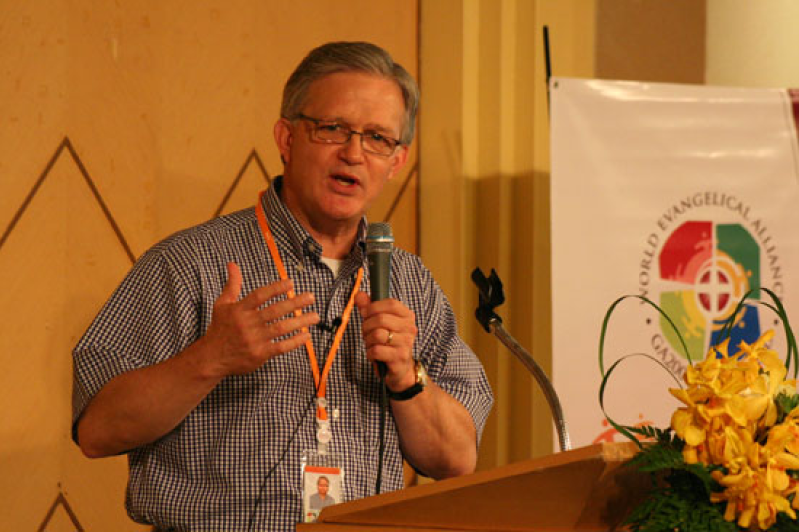
PATTAYA, Thailand – The highly-anticipated, upcoming third Lausanne Congress on World Evangelization will be addressing emerging threats and concerns to Christian missions, informed the head of the Lausanne Congress on Monday at a major evangelical conference.
With new forms of hostility towards Christianity emerging, S. Douglas Birdsall, the executive chair of the Lausanne Committee for World Evangelization, said the 2010 gathering in Cape Town, South Africa, is needed to bring together the best minds in the evangelical world to develop unified responses to challenges to the faith.
“You might ask is there a need for an international congress that deals with world evangelization,” said Birdsall at the 2008 World Evangelical Alliance (WEA) General Assembly in Thailand.
“I would say that throughout history, such gathering is only necessary when the future of the life of the Church is threatened by some type of challenge – either internal challenge or external pressure,” he contended.
Birdsall listed examples such as the Jerusalem Council, the Council of Nicaea, and the first Lausanne Congress in 1974.
“Whatever it was,” the Lausanne head said, “there were issues that the Church had to wrestle with.”
Today, the Church has three major crises that it has to wrestle with – an intellectual crisis, a cultural crisis, and a leadership crisis.
Birdsall observed that in a post-modern, pluralistic world, there is growing opposition to claims about an absolute truth. Christianity, with its assertion that Jesus taught the truth and is the only way to salvation, directly opposes this worldview.
Another challenge is the cultural crisis fueled by shifts in global secular powers including China, a historically Buddhist country; India, a Hindu country; and the Arab world, made up of Muslim countries.
Christianity, meanwhile, is undergoing its own so-called power shift with new leaders emerging from Africa, Asia and Latin America.
The Congress in Cape Town will need to reflect on the demographic, cultural and theological change of the Church as well as the Church in relation to the world.
Birdsall lastly pointed out that the Church is facing a leadership crisis as people such as Billy Graham and John Stott, who have helped define what evangelical is, are aging and passing from the scene.
The Lausanne head maintains that it is imperative for Congress participants to discuss who God is raising up to lead the evangelical movement.
“We’re not trying to repeat the past in terms of reliving the glory days,” Birdsall told The Christian Post on Monday.
“What we are trying to do is to say that the important thing to learn from Lausanne ’74 in particular … is they effectively identified the key issues of their days,” he said. “It is important that Lausanne III in Cape Town identifies the key issues of our day.”
Next October, Lausanne, in partnership with Christianity Today magazine, will begin to feature each month a different issue that will be discussed at the Congress.
Organizers hope that the early release of key documents and papers on the topics will stimulate discussion and feedback that will help prepare for a global Christian conversation at the Congress and via the Web.
Lausanne III: Cape Town 2010 will be held Oct. 16-25, 2010, with an expected participant count of more than 4,000 Christian leaders. This is the first Lausanne Congress since the 1989 gathering in Manila, Philippines, and the second since the first Lausanne Congress was convened by the Rev. Billy Graham in 1974 in Lausanne, Switzerland.
Lausanne I proved to be a watershed moment for the Christian world. It was at this global gathering that for the first time the term “evangelical” was defined and a statement of beliefs was formally proposed and accepted.
The third Lausanne Congress will mark the 100 anniversary of the historic World Missionary Conference in Edinburgh, Scotland, in 1910, which is regarded as the starting point of the modern ecumenical movement.
The WEA, which is currently holding its general assembly until Thursday, is a key partner in the planning of the Lausanne Congress in Cape Town.







